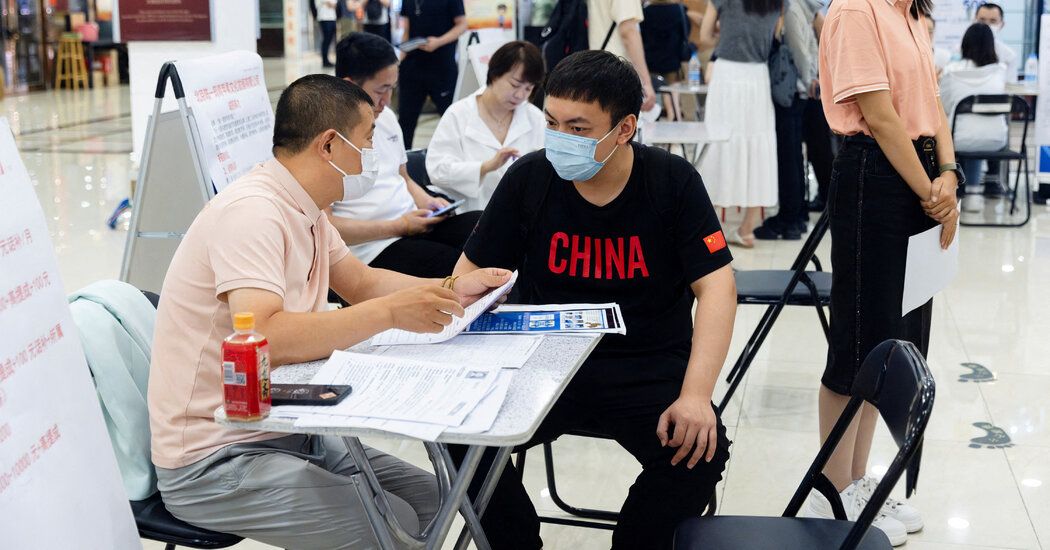After suspending public publication of youth unemployment rates last year, China began distributing the information again on Wednesday, using different measurement criteria that reduced the figure significantly.
China's National Bureau of Statistics stopped announcing the unemployment rate among 16- to 24-year-olds after the figure rose for six consecutive months to 21.3 percent in June, a record. The government said when it suspended the July figures that data collection needed to be “further improved and optimised”.
The growing number of unemployed youth had become an inconvenient data point that seemed to refute Beijing's claim that the country's economy was recovering after the lifting of pandemic restrictions.
The government agency said the renewed unemployment figures now exclude students in school. After adjusting its calculation methods, the bureau said unemployment rates among 16- to 24-year-olds stood at 14.9 percent in December.
Kang Yi, director of the National Bureau of Statistics, said at a news conference that this methodology produced “more accurate tracking of youth unemployment” because it separated young people who were looking for part-time jobs while in school from those who were looking for full time jobs. jobs after graduation. He noted that graduates needed to find work, but that the students' main task was “to study, not to work part-time.”
He Yafu, an independent demographer based in the southern city of Zhanjiang in Guangdong province, said he believed the change in measurement had helped reduce the headline figure, although he believes many young people are unemployed.
In another change, the statistics office said it had created a new age group to measure unemployment. China said it would now track unemployment rates among 25- to 29-year-olds, who had been grouped with a 25- to 59-year-old group. The change was necessary because more young people are going to graduate school before entering the job market, the office said, adding that 6.1 percent of 25- to 29-year-olds were unemployed in December.
Part of the challenge for Chinese authorities is the growing number of college graduates entering the job market. In 2024, the number of college graduates is expected to rise nearly 2 percent to a record 11.79 million, according to Xinhua, the state news agency. The number of graduates has quadrupled since 2004.
It remains difficult for many young Chinese to find jobs because the overall economy is sluggish compared to the rapid growth of the past. At the same time, the government has cracked down on once-vibrant industries such as online education, technology and real estate, where young people flocked in search of employment. As a result, scores of highly educated young Chinese – who were told from a young age that education would provide them with opportunities for a better life – are facing the reality that the jobs they want are not available.
“Looking at this year's job market, the pressure is still there,” admitted Mr. Kang. But he pointed to some reasons for optimism, including economic growth that will create more jobs. And he said more people were leaving the workforce this year, mainly due to retirement, than entering it.
“They will provide more space for job seekers,” he said.
Keith Bradsher contributed reporting from Beijing.










